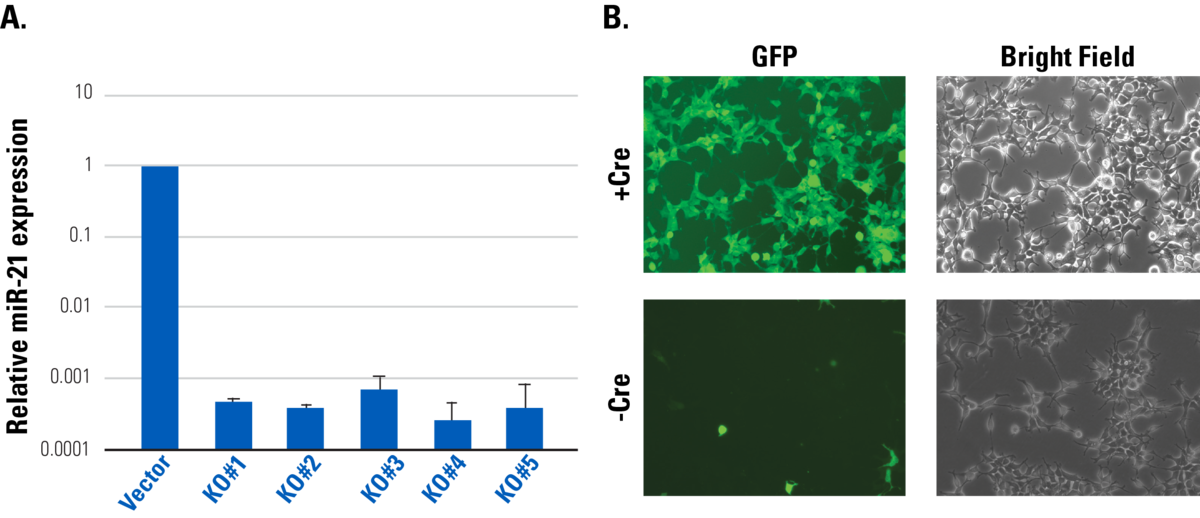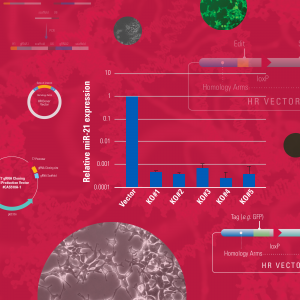CRISPR/CAS9 CELL LINE ENGINEERING SERVICES
Get reliable CRISPR/Cas9 cell line engineering services from our experienced team—on-time delivery, consistent quality, and full confidentiality.
Go directly to engineered cell lines with SBI’s CRISPR/Cas9 Cell Line Engineering Services
Why choose SBI’s CRISPR/Cas9 genome engineering services?
- Choose either gRNA and HR donor design and construction or our complete Cell Line Engineering Service
- Leverage our well-designed CRISPR/Cas9 products which are used in a number of peer-reviewed papers
- Accomplish more with turn-around times of as little as 1–2 weeks for gRNA cloning, 3–4 weeks for HR donor cloning, and 10–14 weeks for full cell line engineering projects
- Rest easy with your project in the hands of our experienced team that's successfully completed dozens of genome engineering projects
- Enjoy consistent quality, confidentiality, and on-time delivery with all projects completed on-site in our Palo Alto, CA, facility
How SBI's CRISPR/Cas9 Cell line Engineering Services Work
SBI will use custom Cas9/gRNA constructs and plasmid or oligonucleotide-based HR donor templates to engineer target cell lines for knock-out, knock-in, tagging, or single nucleotide modification applications. SBI can screen cells to identify a clonal line with the desired modification or deliver a mixed population of cells for further characterization.
Note that SBI’s CRISPR/Cas9 Genome Engineering Services take advantage of our robust and reliable CRISPR/Cas9 products.
Supporting Data
Successful genome engineering with SBI

Figure 1. Successful genome engineering with SBI—effective, efficient knockout of miR-21 in HEK293 cells. gRNA, HR Donor design (with Puro and GFP selection markers), implementation, and analysis performed by SBI’s genome engineering services team. (A) Low relative levels of miR-21—as measured by qPCR in GFP-positive clones—demonstrate the effectiveness of the approach. (B) After excision with Cre recombinase, the inserted GFP and Puro markers are efficiently excised, leaving only a single LoxP site from the HR Donor. From Ho, TT, et al. Targeting noncoding RNAs with the CRISPR/Cas9 system in human cell lines. Nucleic Acids Res. 2015 Feb 18; 43(3):e17. PMCID: PMC4330338.


